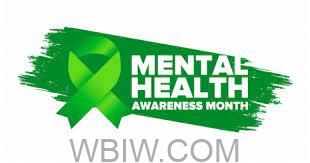
INDIANA – Youth First, Inc. encourages all Hoosiers to join in recognizing May as Mental Health Awareness Month, a national movement to fight stigma, raise awareness, and advocate for better mental health care for adults and children.

“Our young people are growing up in a complex and challenging world that puts them at greater risk for addiction, suicide, violence, and additional harmful behaviors,” said Parri O. Black, President & CEO of Youth First. “But with generous community support, Youth First will continue strengthening mental health and coaching more kids to thrive.”
This year, Youth First will embed at least 78 Master’s level social workers and prevention programs in 107 schools across 13 Indiana counties, where they are easy to access and free of charge for over 47,600 students and their families. However, the need is much greater.
U.S. Surgeon General Dr. Vivek Murthy recently issued a rare advisory stating that our nation’s youth are facing a mental health crisis and calling for increased resources in schools and communities. While the COVID-19 pandemic is ebbing, its effects on our collective mental health are proving severe and long-lasting, particularly among youth and marginalized populations.
According to the National Alliance on Mental Illness (NAMI), one in six youth aged 6-17 experiences a mental health condition each year. In 2021, emergency department visits for suspected suicide attempts were 51% higher among adolescent girls than in 2020.
Youth First saw similar trends across its footprint last year, with a 40% increase in crisis interventions primarily for suicide risk and a 60% increase in educators seeking stress reduction support for their students as well as themselves.
“Independent evaluations confirm that Youth First’s approach builds resiliency and well-being in young people,” Black said. “And that is why we continually get requests to serve more schools and communities.”
To learn more about Youth First’s programs and services or how to become a donor, visit youthfirstinc.org. If you are thinking about suicide, concerned about a friend or loved one, or would like emotional support, call the National Suicide Prevention Lifeline at 1-800-273-TALK, available 24/7 across the U.S.



